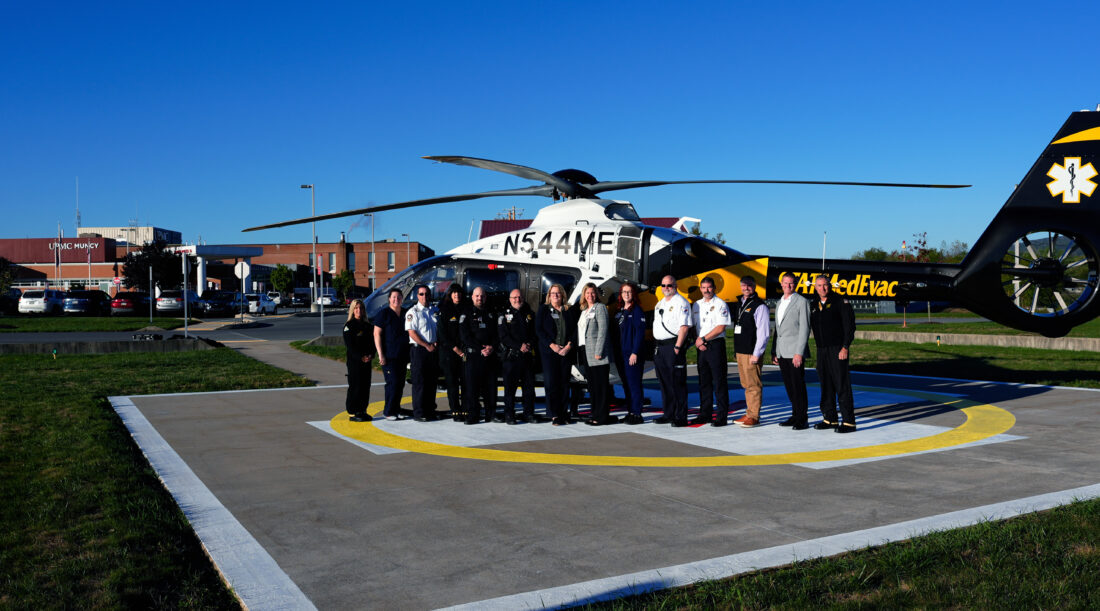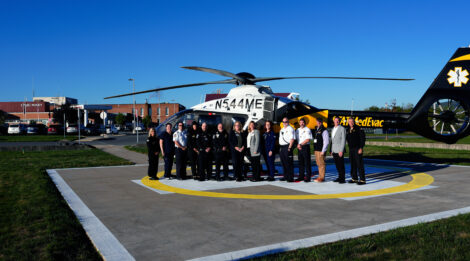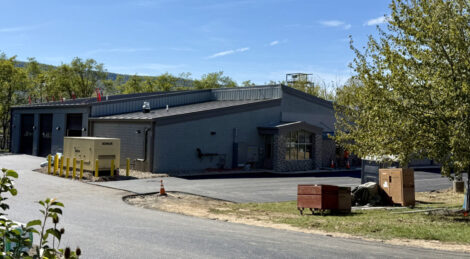‘Transformative step’: UPMC Muncy getting helicopter

Eastern Lycoming County will get a second medical helicopter next year stationed at the UPMC Muncy.
UPMC and STAT MedEvac are in the process of establishing a critical care transport base at the hospital, which lies along Route 405 near Interstate 180 and it is expected to be operational in the spring, according to a UPMC North Central Pennsylvania spokesman.
Each helicopter is to be staffed by a pilot, flight nurse, and paramedic, and equipped with advanced medical technology to begin critical care immediately, officials said.
Helicopter EMS transport from the scene has been associated with improved survival when compared with ground emergency medical services for trauma patients, and this has made it an integral component of modern trauma systems.
Up to 27% of the U.S. population relies on helicopter EMS transport to reach a trauma center within the “golden hour,” especially in rural areas where the nearest trauma center is remote.
UPMC and STAT MedEvac said they are deepening their commitment to Lycoming County and all of northcentral Pennsylvania by establishing a new critical care transport base at UPMC Muncy.
STAT MedEvac is anticipated to be an added resource for critical care transport in the region and will not affect the operations Life Flight, Life Lion and Guthrie Air, officials said.
STAT MedEvac, the nation’s largest hospital operated and dispatched air-medical transport system, will have a dedicated helicopter and response team at a soon-to-be constructed base on the hospital’s campus expanding rapid access to life-saving care across the region.
“This marks a transformative step in our commitment to saving lives,” said Patti Jackson-Gehris, market president, UPMC North Central Pa., and president, UPMC Williamsport. “With strong EMS partners like Susquehanna Regional EMS and our Level II Trauma Center at UPMC Williamsport, the only missing piece has been a dedicated critical care helicopter — until now.”
Rural communities face unique challenges in emergency response, including long distances, limited infrastructure, and difficult terrain, she added.
“Helicopter transport helps overcome these barriers, delivering advanced care during the critical golden hour following traumatic injury,” Jackson-Gehris said.
“Having a dedicated helicopter in our region provides added resources for our teams, especially when dealing with emergencies in our rural communities and long-distance interfacility transfers,” said Tony Bixby, chief, Susquehanna Regional EMS, and director, Pre-Hospital Services, UPMC in North Central Pa. “It means faster access to trauma care, stroke centers, and cardiac hospitals — especially for patients in remote areas. This will save lives and improve outcomes for countless families in our communities.”
“Adding a helicopter and flight crew to the area will dramatically enhance our emergency response network,” said Jim Houser, president, UPMC’s Center for Emergency Medicine (CEM) of Western Pennsylvania. “Our teams work closely with the local county 911 centers and EMS agencies to ensure rapid deployment when air transport is needed. We’re always ready to deliver the highest level of care when every second counts and are excited to work with Susquehanna Regional EMS and our regional public safety partners.”
With this new base site, STAT MedEvac’s operations expand to 19 helicopter base sites in Pennsylvania and neighboring states.
STAT MedEvac is a critical care transport system and is the clinical arm of UPMC’s CEM of Western Pennsylvania.
STAT MedEvac is an added resource to the region for critical care transport. STAT MedEvac, LifeFlight, Guthrie Air, and Life Lion all have an existing presence supporting air transport across the region and collaborate just like other EMS services to provide care and services to the community.
The Center for Emergency Medicine of Western Pennsylvania, Inc. is a not-for-profit organization wholly owned by UPMC and directed by the following hospitals; UPMC Presbyterian Shadyside, UPMC Children’s Hospital of Pittsburgh, UPMC Hamot, UPMC Altoona, and UPMC Mercy.
The anticipated date for breaking ground is in the spring, with permitting approval being sought, officials said.
“We expect to be able to break ground within the next few months, pending local and state regulatory approvals,” a hospital spokesman said. “We expect to have the service operational by spring of 2026. While in the construction phase, we are actively recruiting for the team for this new operation.”




